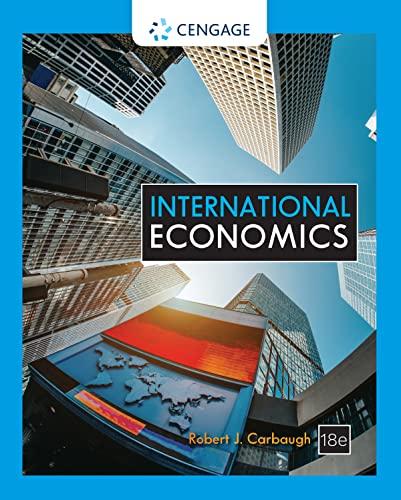For an American investor, betting on foreign securities (stocks or bonds) involves additional risks beyond the risks
Question:
For an American investor, betting on foreign securities (stocks or bonds) involves additional risks beyond the risks of investing in U.S. securities. These risks include political uncertainty, different financial and accounting standards, different regulatory environments, and different economic factors in countries other than the United States. Currency fluctuations are another risk of investing in foreign securities.
When investors purchase shares in an international securities fund, they gamble on the companies that the fund holds, its performance record, and its management style. They also wager on the local currencies that the foreign securities are denominated in, whether the fund uses currency hedges, and if they want a hedged fund. Some investors do not want to bear the risk of exchange rate fluctuations in addition to equity risk, and they wish to hedge their currency exposure back into dollars. Others see changing exchange rates as a welcome form of diversification. If returns on foreign securities and exchange rate changes both fare well, total returns increase. However, investors can lose money during a period when both perform poorly.
International investors who hedge generally use currency forwards. These are contracts between two parties to buy or sell an amount of currency at a specified future time at a price agreed upon today. The cost of hedging varies over different time periods and with different currencies. That's because it is basically determined by the discrepancy between interest rates in the United States and those in other countries. For large institutional investors, such as an investment company, using forwards is generally economical. Among major currencies such as the dollar and yen, the forward market is highly liquid, and spreads tend to be thin. Hedging more exotic currencies, such as the Russian ruble or Indian rupee, costs a little more. The main disadvantage of hedging is the opportunity cost of not profiting from favorable fluctuations in exchange rates. This is why most international securities funds do not hedge their currency exposure and others hedge only a portion of it. Managers of Oakmark Funds, an international stock fund, hedge only when they have sizable exposure to a currency that they estimate to be at least 20 percent overvalued relative to the dollar.
To provide diversification for its investors, Tweedy, Browne Co., a New York-based investment company, provides two international funds. Introduced in 1993, Tweedy's Global Value Fund uses currency hedges to protect its investors from currency risk. After learning that some of its investors liked the fund's approach to stock selection, but not its hedging policy, Tweedy introduced its Global Value Fund II in 2009. This fund has the same portfolio of stocks as the Global Value Fund but does not hedge. This allows investors the opportunity to profit from favorable fluctuations in exchange rates in addition to favorable movements in stock prices. Investors bear the risk of losing money if adverse fluctuations in exchange rates or stock prices occur.
What do you think? Given the possibility of fluctuating exchange rates, would you be willing to invest in foreign securities?
Step by Step Answer:






